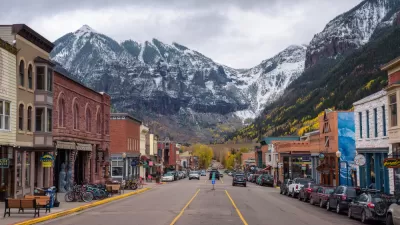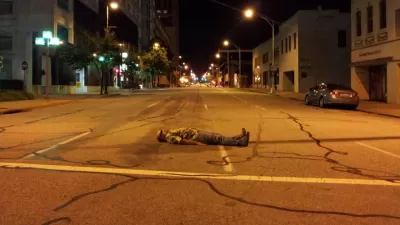Edward T. McMahon explores the importance of community character, and why it is one of the key elements to a city’s economic success.
Countless surveys have looked into what makes a city appealing to residents, visitors and businesses. Cities are often ranked based on sustainability, innovation and efficiency, but what McMahon argues is most important to the economic sustainability is community distinctiveness, a city's sense of place.
"A sense of place is a unique collection of qualities and characteristics – visual, cultural, social, and environmental – that provide meaning to a location. Sense of place is what makes one city or town different from another, but sense of place is also what makes our physical surroundings worth caring about."
McMahon argues that planners need to concentrate less time focused on facts and figures and more attention on defining and developing the distinct characteristics and quirks that make a city its own. Joseph Cortright, a leading economic development authority says that "the unique characteristics of place may be the only truly defensible source of competitive advantage for communities."
"The more one city comes to look and feel just like every other city, the less reason there is to visit. On the other hand, the more a city does to enhance its uniqueness, whether that is cultural, natural or architectural, the more people will want to visit." Paris is noted as a prime example of a distinct city, receiving 27 million visitors per year, more than any city on the planet.
FULL STORY: The Distinctive City

Planetizen Federal Action Tracker
A weekly monitor of how Trump’s orders and actions are impacting planners and planning in America.

Maui's Vacation Rental Debate Turns Ugly
Verbal attacks, misinformation campaigns and fistfights plague a high-stakes debate to convert thousands of vacation rentals into long-term housing.

Restaurant Patios Were a Pandemic Win — Why Were They so Hard to Keep?
Social distancing requirements and changes in travel patterns prompted cities to pilot new uses for street and sidewalk space. Then it got complicated.

In California Battle of Housing vs. Environment, Housing Just Won
A new state law significantly limits the power of CEQA, an environmental review law that served as a powerful tool for blocking new development.

Boulder Eliminates Parking Minimums Citywide
Officials estimate the cost of building a single underground parking space at up to $100,000.

Orange County, Florida Adopts Largest US “Sprawl Repair” Code
The ‘Orange Code’ seeks to rectify decades of sprawl-inducing, car-oriented development.
Urban Design for Planners 1: Software Tools
This six-course series explores essential urban design concepts using open source software and equips planners with the tools they need to participate fully in the urban design process.
Planning for Universal Design
Learn the tools for implementing Universal Design in planning regulations.
Heyer Gruel & Associates PA
JM Goldson LLC
Custer County Colorado
City of Camden Redevelopment Agency
City of Astoria
Transportation Research & Education Center (TREC) at Portland State University
Jefferson Parish Government
Camden Redevelopment Agency
City of Claremont





























